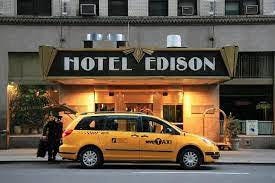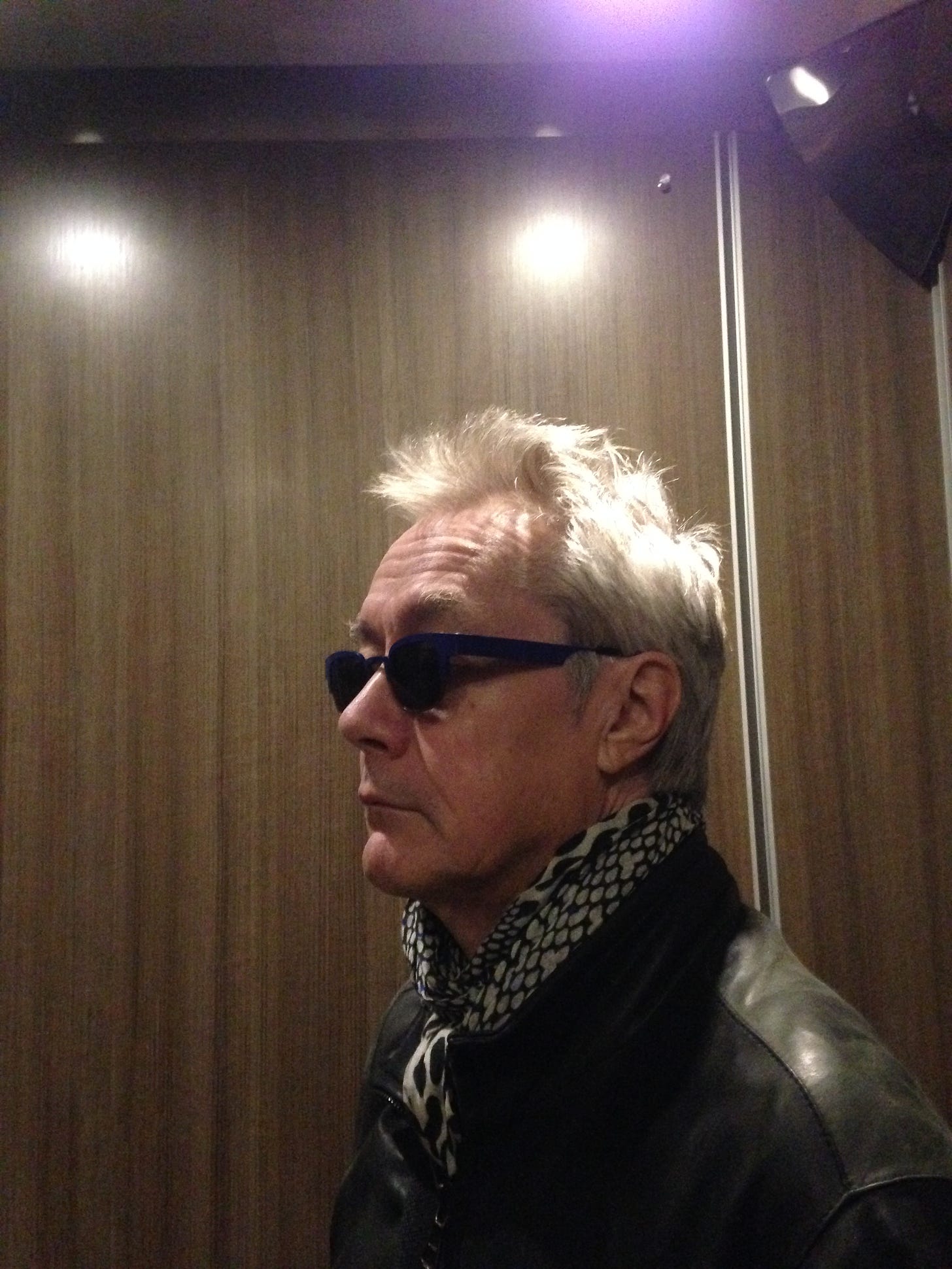My First New York: An Englishman Breathes the City
Richard Toon recalls his first taxi ride into Manhattan forty years ago, and a kind driver who had been around the block a few times.
It’s 1983 or 1984. That’s 40 years ago or so, so give me a break if I don’t know the exact year. It’s only now I understand how little I knew then and that was the thrill of arrival.
It was late summer, and it was raining. I came out of the subway and looked up. It was dark. The buildings crowded around me and shot into the clouds. I can swear there were clouds and that I couldn’t see the tops of the buildings. People pushed past me on the street. I didn’t know what street I was on or where my hotel was located. I was heading for the Edison. I hailed a yellow cab the way I would hail a black cab in London. I said to the driver, “Can you take me to the Edison Hotel?”
His cab was old, with no partition, worn leather seats, and plastered all around were photos of the famous people he’d given rides to. One was Dean Martin, holding a glass with ice cubes. What did the driver know about me immediately? Everything, I think. He said “We’re close, but I’ll take you for free. It may take a while. I don’t think you should walk.” We were going east and the hotel was only a block south and west, so he would have to go around the block, and at this time of night, what with the theatre crowd, it could take some time.
People pushed past me on the street. I didn’t know what street I was on or where my hotel was located. I was heading for the Edison. I hailed a yellow cab the way I would hail a black cab in London. I said to the driver, “Can you take me to the Edison Hotel?”
He said he guessed I was “a limey” and that this was my first visit. “You should be careful here,” he said. He said he’d been driving this cab for over thirty years and still didn’t own it. He said, “I’m Jewish, if you couldn’t tell.” I said, “I don’t believe anything.” He laughed and said, “Neither do I.”
He said, “Don’t have breakfast in the hotel, and keep an eye on your bag at all times, and watch out for hustlers on the street, and avoid Times Square if you can, and stay out of the peepshows, and don’t over-tip.” As he pulled up to the Edison, he said I was lucky he’d been the one to pick me up. He said, “Remember, be careful. This will be your last free ride, ever.” And he was right.
A row of men was ahead of me checking in. They were all in suits and several were carrying instrument cases. A pile of suitcases next to the front desk had stickers on them saying, “Buddy Rich Big Band.” I couldn’t believe it, or quite take it in. I thought my Dad wouldn’t believe it any more than I did. I realize now that, not counting a school trip I took to Switzerland when I was 15, this was the first hotel I’d ever stayed in.
He said, “Don’t have breakfast in the hotel, and keep an eye on your bag at all times, and watch out for hustlers on the street, and avoid Times Square if you can, and stay out of the peepshows, and don’t over-tip.” As he pulled up to the Edison, he said I was lucky he’d been the one to pick me up. He said, “Remember, be careful. This will be your last free ride, ever.” And he was right.
A bellhop grabbed my bag and escorted me to the elevator. He didn’t speak. He opened my door on the twelfth floor and gave me the key. He put down my bag and looked at me and said, “Here’s where you tip me,” and I gave him ten dollars. The room was tiny and dingy. It was hot. I turned on the radio, and as I looked down on the life in the streets, Billy Holiday came on and sang, “I’ve got the right to sing the blues,” and I just stared and stared out of the window.
Okay, it’s 2023, and the memory is of 1983, but I think in the hotel room it was 1943. It was my Dad who loved swing music and had served with the Americans during WW2 and fallen in love with the culture. It was my Dad who’d collected big band music, and the way my love for the music and my love for my Dad were mixed up together inside me was the way I could always feel who I was, no matter how far from England I moved.








I love how time dissolves in the final passage, how the language swirls place, memory, relationships and music into one bottomless moment. Thank you!
Great piece. It's always interesting to hear of people's first reactions to NYC. (I am a native fifth-gen New Yorker.) In Arizona and other intermountain west states, I meet baby boomers who had terrible first visits in the 1970s and got such a very bad opinion of the city that they never came back and say things like, "How can you be from New York? You're not rude and obnoxious like everyone I came across there." I've lived all over, and to me, New Yorkers are the nicest people in the U.S. -- people like Richard's cab driver, who sounds like some of my friends' fathers who drove taxis back then.